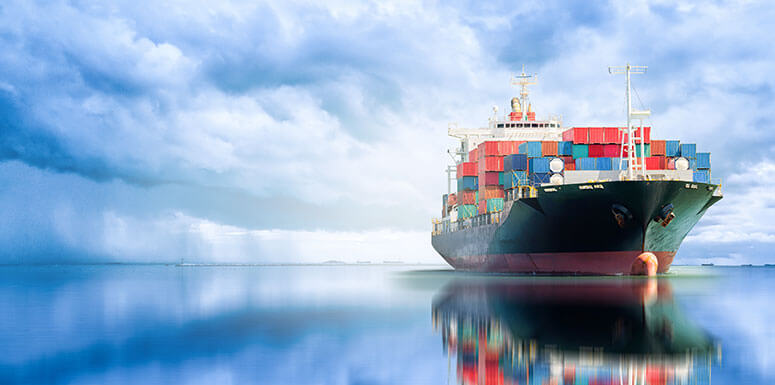
The shipping industry uses cranes for a variety of different purposes. Whenever there is an instance of crane failure on a vessel, the consequences can be disastrous for operators, ship owners, seafarers, and other ship employees. Although each instance of crane failure is unique, there are similarities regarding the circumstance and cause of these accidents. Crane failures can result in injury, death, damage, high monetary costs, and lost time aboard the ship as the crane is taken out of service, an investigation is conducted, and repairs are made.
If you have suffered an injury in a maritime accident due to a crane failure, you may be experiencing significant hardship at the moment due to the nature of your injuries and mounting medical costs. At The Krist Law Firm, P.C., our team of skilled maritime injury attorneys focuses on helping you obtain any compensation to which you may be entitled.
Call us today at (281) 283-8500, or contact us online to set up a free consultation about your case.
Identifying Causes of Failure
Various factors can cause crane failures in the shipping industry. When one of these failures occurs, it is best to conduct an investigation into the foundational cause of the vessel’s crane function and eventual failure. Having the right professional experts on-site to assess the evidence as it exists early on is vital to ensuring the preservation of that evidence which can be highly beneficial for resolving any disputes about the reasons for the crane failure.
Crane failures throughout the global shipping industry have a number of similar characteristics and causes, five of which are listed below:
1. Wire Failure
One of the most common causes for crane failures in the shipping industry involves wire failures. Wires on a ship’s crane are subject to failure when they are fatigued, overloaded, possess a pre-existing defect, or experience deterioration. Serious and dangerous accidents can result from wire failure, including having large cargo loads dropped from a high position without warning.
2. Sheave Failure
If the bearings on sheaves are not greased on a routine basis, problems may develop that require the use of rigging with a crane to gain access to the area. Remote greasing systems have the potential to fall into disrepair, necessitating the application of grease to the local area of the bearing. If this type of maintenance is neglected due to its time-consuming and difficult nature, crane failures become more likely to occur. Additionally, wires are more likely to wear out faster due to sheave issues.
3. Improper Use of Slew Bearings
Catastrophic crane failure can be the result when slew bearings are not applied for their specific intended use, not properly monitored, and not adequately observed serviced. Crane failures resulting from such misappropriation of slew bearings can involve the entire crane tipping over, resulting in the potential for serious injury and death, along with significant financial loss due to the damage caused.
4. Lack of Required Maintenance
Certain crane components can be designated by crane manufacturers as not requiring maintenance. However, many of these components do require periodic checking and overhaul, despite this given designation. Certain crane failures have occurred due to human interpretation applied to the manufacturer’s guidelines of such parts as “maintenance-free” for the entire cycle of their use.
5. Mishandling
The work of crane operators and handling of loads must be monitored by those aboard the vessel. Any mishandling of a crane or the swinging of its load can result in serious consequences, including severe injury, death, and possible structural collapse resulting in significant damage to the ship.
Examining Failure Issues
Minimizing the risk of crane failures is in the best interest of crane owners and operators. Many of the causes of failure are easily avoidable with the proper implementation of the right precautions and best practices.
Unfortunately, cranes are not always given the level of priority they demand due to their infrequent use. Unlike major and active working components of a vessel, such as its main engine, cranes are often used only at specified times, i.e. during the unloading and loading of cargo. Components of cranes such are at risk for deterioration and degradation in the midst of a challenging marine environment.
As well, the need to reduce costs can lead owners and operators to cut back on necessary maintenance requirements including any required repair, replacement, or overhaul of vital machinery parts, including a ship’s cranes.
Preventing Failure
The highest priority for the prevention of failures involving cranes is the establishment and execution of a routine maintenance regimen that involves thorough inspection and adequate care of cranes in accordance with all recommended and necessary requirements.
It may also be beneficial to have a crane service engineer inspect a ship’s crane on a multi-year basis. A crane’s hydraulic motors and pumps are vital to its operation. These components should be included in the inspection. This inspection regimen may include analyzing the hydraulic oil used in these pumps and motors for wear, debris, and contaminants.
Contact a Skilled Houston Maritime Accident Attorney
At The Krist Law Firm, P.C., we understand the challenges faced by injured maritime workers. If you are looking to obtain any and all compensation to which you may be entitled for your injuries, our team is here to fight for your right to this compensation.
Contact a Houston maritime lawyer from our office today at (281) 283-8500, or contact us online to schedule a free case evaluation.

